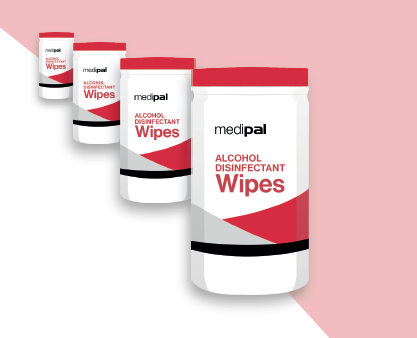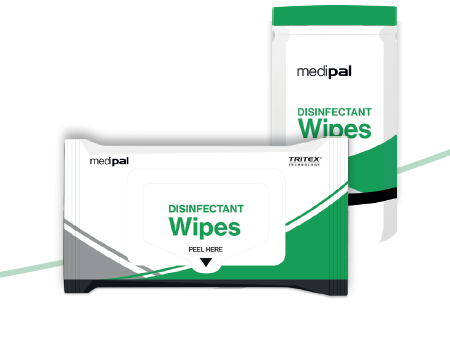Norovirus can spread quickly and is a leading cause of acute gastroenteritis. We’ve put together this short guide with key information and links for further guidance.
WHAT IS NOROVIRUS?
Norovirus is a stomach and intestinal virus that’s highly contagious. Known commonly as winter vomiting disease, it’s the leading cause of gastroenteritis.
The virus is easily transmitted from one person to another. Outbreaks are common in semi-enclosed environments such as hospitals, nursing homes, schools, and cruise ships. It can also occur in restaurants and hotels.
Anyone can get infected and sick with norovirus. The main causes are:
- Consuming contaminated food or beverages.
- Close contact with someone who has the virus.
- Touching contaminated surfaces and then putting your unwashed hands in your mouth.
Noroviruses are estimated to cause 60 percent of all cases of acute gastroenteritis from known pathogens. Pathogens are anything that can cause illness, like bacteria or viruses.
There are around 685 million cases worldwide, according to the Centres for Disease Control and Prevention (CDC). Every year norovirus is estimated to cost $60 billion globally due to healthcare costs and lost productivity.

WHAT ARE THE SYMPTOMS OF NOROVIRUS?
Norovirus causes inflammation of the stomach or intestines. This is called acute gastroenteritis. The virus is usually mild and lasts for 1 to 2 days.
The main symptoms of norovirus are:
● feeling sick (nausea)
● being sick (vomiting)
● diarrhoea
● stomach pain
You may also have:
● a high temperature of 38°C or above
● a headache
● aching arms and legs
The signs and symptoms of norovirus usually begin 12 to 48 hours after exposure, but you can continue to shed the virus in your faeces for up to 2 weeks after recovery.
Most people make a full recovery, but diarrhoea and vomiting can cause dehydration, especially in young children, the elderly and people with other illnesses.
The symptoms of dehydration include:
● dry mouth and throat
● decrease in urination or dark urine
● feeling dizzy when standing up
Here are some do’s and don’ts on how to treat diarrhoea and vomiting. Also remember that you can still spread the virus for up to 2 weeks after symptoms subside.
”Up to 30% of the time people with norovirus show no symptoms, but they are still contagious and can spread the virus to others. This is especially common in children.”
Centers for Disease Control and Prevention

The most common symptoms of norovirus are:
- nausea
- diarrhoea
- vomiting
- stomach pain
HOW TO PREVENT NOROVIRUS?
Norovirus is very infectious and good hygiene is important to prevent it from spreading. There are various things you can do to lower the risk of transmission.
Practice proper hand hygiene
Wash your hands thoroughly with soap and water, especially after using the toilet or changing a nappy; also before eating, preparing, or handling food, and before giving yourself or someone else medicine. Alcohol-based hand sanitisers are no substitute for soap and water.
Handle and prepare food safely
Carefully wash fruits and vegetables before eating them. Cook oysters and other shellfish thoroughly. Throw out any food that might be contaminated.
When you are sick, do not prepare food or care for others
You should not prepare food for others or provide healthcare while you are sick and for at least 2 days after symptoms stop. Stay at home from work.
Clean and disinfect surface
After someone vomits or has diarrhoea, always thoroughly clean and disinfect the entire area immediately. Use disinfectant or a chlorine bleach solution on contaminated surfaces.
Wash laundry thoroughly
Remove and wash clothes or linens that may be contaminated. Carefully throw away items such as dirty nappies. Wear disposable gloves and wash your hands after.

WHERE TO FIND MORE INFORMATION?
In the UK, there are various resources available. Some of these are available from the norovirus section of the gov.uk website. Here you’ll find information on:
● Hospital Norovirus Outbreak Reporting System: user guidance
● Stop norovirus spreading this winter: leaflet
● Norovirus: managing outbreaks in acute and community health and social care settings.
Elsewhere you’ll find guidance from the CDC. There is more general information on norovirus as well as a range of resources and references. These are helpfully organised into food safety and healthcare materials.
Healthcare providers need to report outbreaks via the Hospital Norovirus Outbreak Reporting System (HNORS) and the CDC has a similar surveillance system in the US

WHAT ARE THE TREATMENT OPTIONS?
There is no specific treatment or medicine for norovirus. No antiviral drug can treat norovirus and, like other viruses, it doesn’t respond to antibiotics, which are designed to kill bacteria.
People with symptoms can usually treat themselves at home. For otherwise healthy people, the illness should go away on its own within a couple of days.
Stay off work or school until the symptoms have stopped for 2 days. Also avoid visiting anyone in hospital during this time. This is when you’re most infectious.
To prevent dehydration, make sure to drink plenty of liquids. It’s important to replace fluid lost from vomiting and diarrhoea. Avoid sugary drinks, which can make diarrhoea worse, as well as alcohol and caffeinated beverages.
Severe dehydration can lead to serious problems. So if you think you or someone you are caring for is becoming severely dehydrated, visit the doctor.

ARE THERE ANY VULNERABLE GROUPS?
For most people, norovirus infections usually clears up within a few days and isn’t life threatening. Dehydration is the biggest risk factor and can affect some more than others. These are the groups most vulnerable:
● people with a weakened immune system
● people with preexisting health conditions
● the very old and the very young
● organ or stem cell transplant recipients
Infants and young children are particularly susceptible. Worldwide, around 200 million cases of norovirus a year occur in children under the age of 5. In the US, 1 in 278 children will need hospital care for norovirus by their fifth birthday. Of these, 1 in 14 will need emergency room care, and 1 in 6 will need outpatient care.
Look out for signs of dehydration. Children who are dehydrated may cry with few or no tears and be unusually sleepy or fussy. Norovirus spreads quickly among children. Infected children shouldn’t attend school, day care, or other activities.
Getting norovirus when you’re pregnant shouldn’t harm you or your baby in the long term, but if you have diarrhoea and vomiting it’s a good idea to contact your doctor.

WHAT PRODUCTS ARE EFFECTIVE?
Medipal has three ranges of products effective against norovirus.
- Disinfectant Wipes
- Alcohol Disinfectant Wipes
- Chlorine Disinfectant Wipes

MANAGING THE THREAT OF NOROVIRUS
You can get norovirus several times in your life. Based on genetic typing, we know that there are at least 25 different strains of norovirus that affect humans. The RNA genome in norovirus easily mutates to produce new types.
It’s possible to develop immunity to a specific type, but it’s not known how long that will last. On top of that, infection with one type of norovirus may not protect you against other types. This explains why so many people of all ages get infected during an outbreak.






